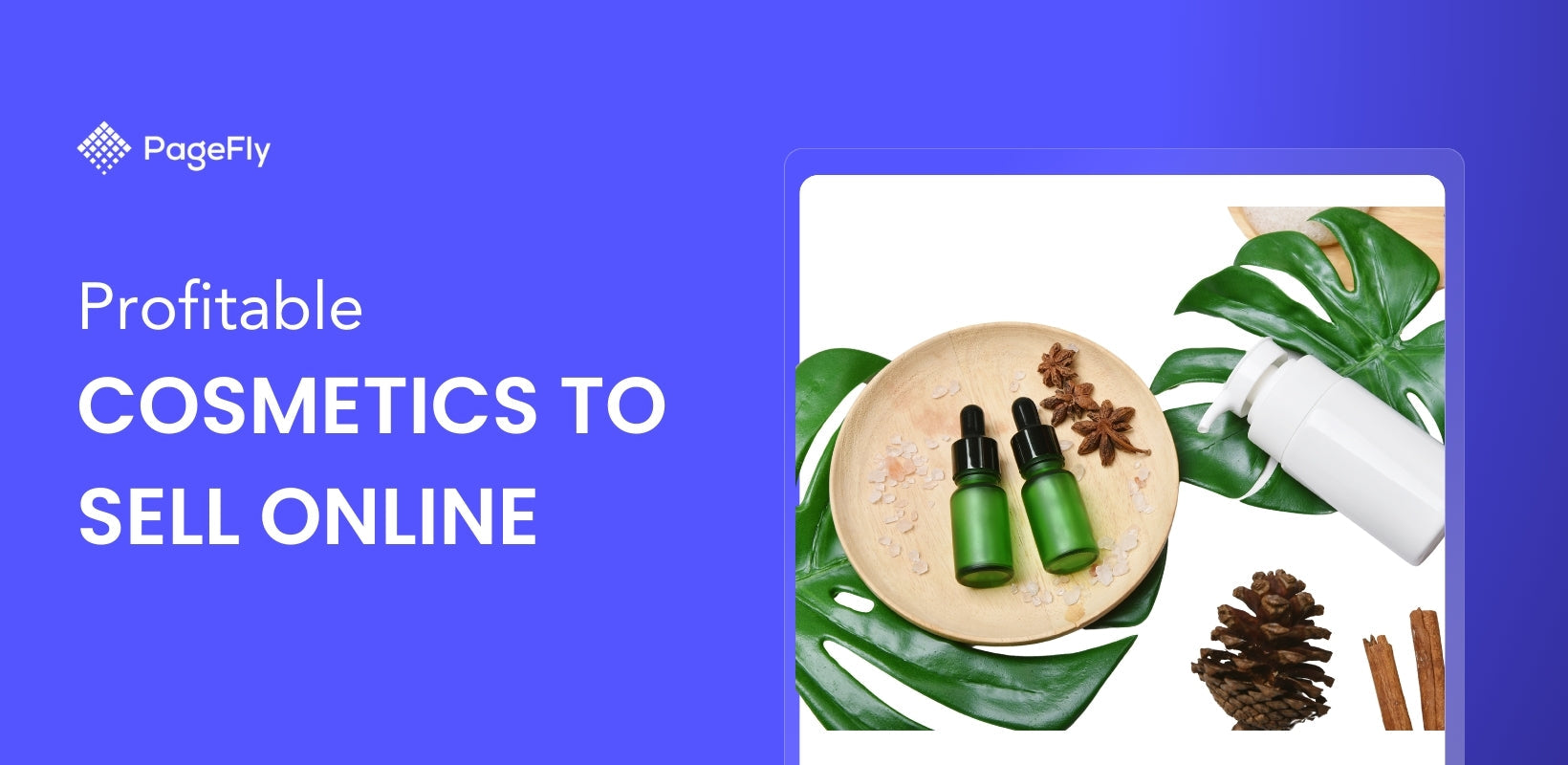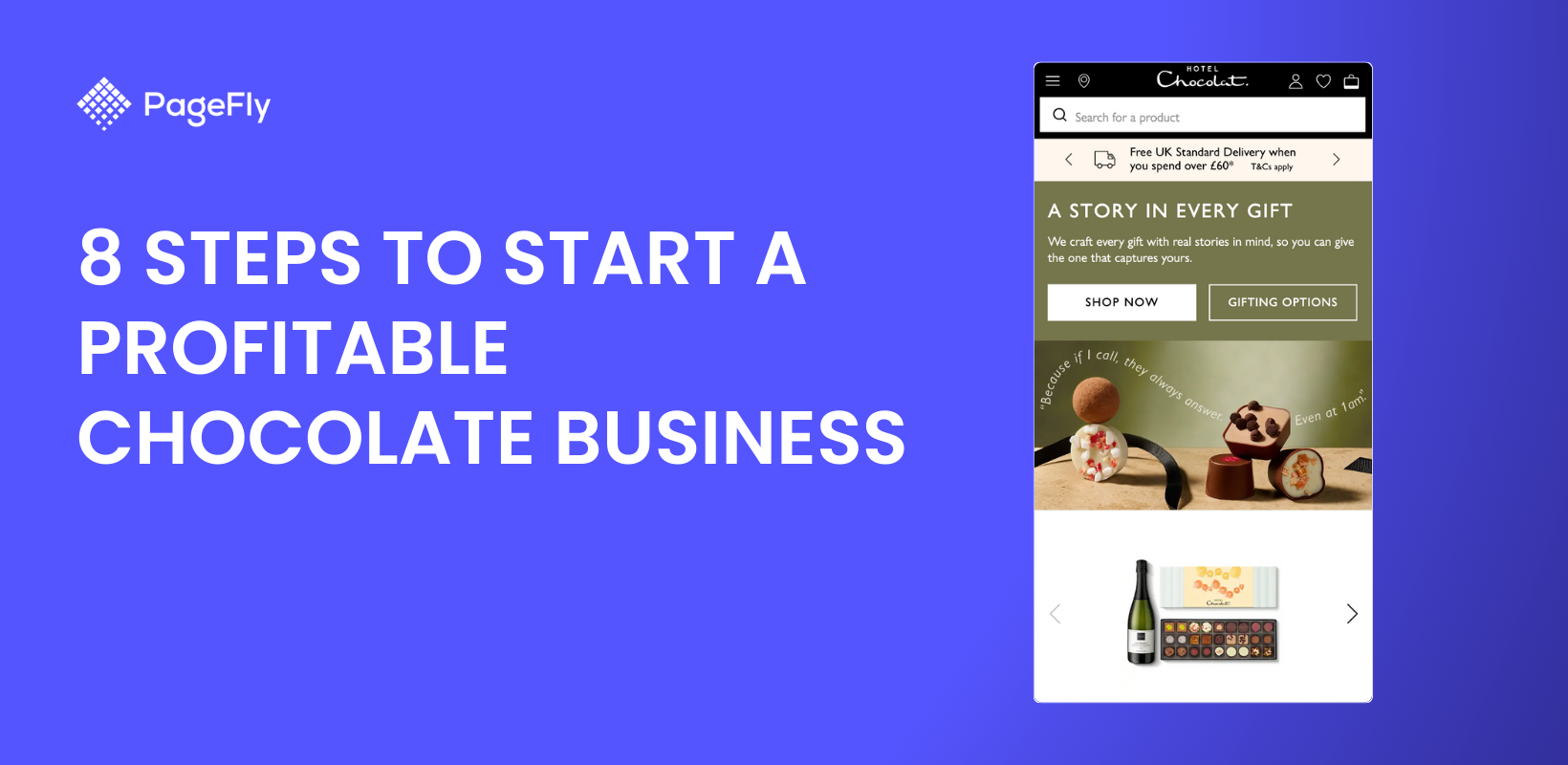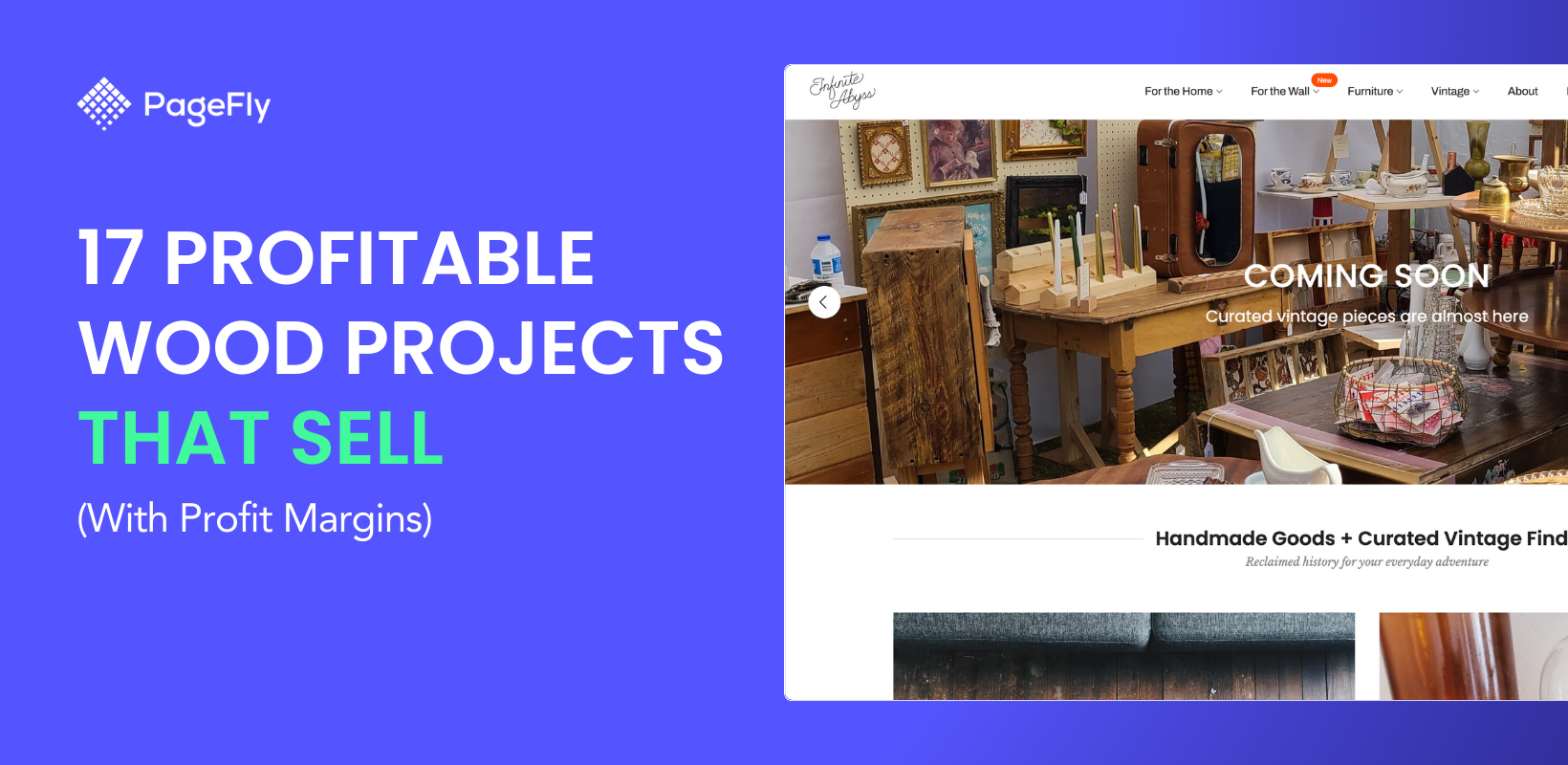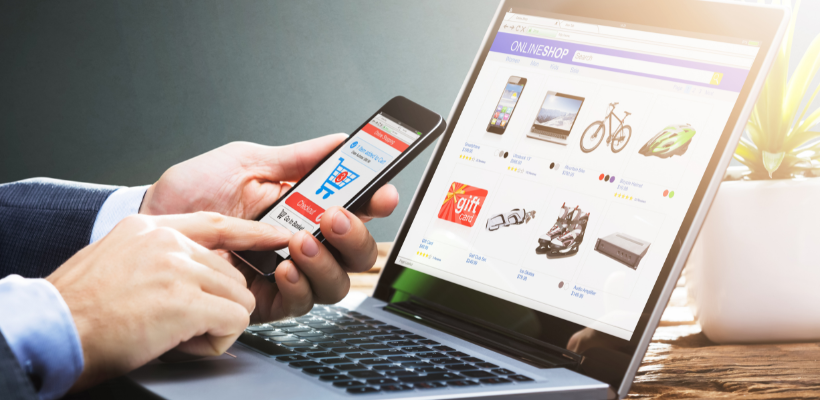3PL e-commerce fulfillment companies are handling more and more e-commerce services each year, as an increasing number of brands look for ways to handle their growth and capacity issues. In fact, the global 3PL market is estimated to reach a whopping $1.3 trillion by 2024.
Today, around 60% of online retailers outsource fulfillment services, either fully or partially.

A third-party logistics company (3PL) is a special kind of logistics provider. They're like couriers and freight forwarders, but they specialize in helping any and every e-commerce business to manage its fulfillment needs.
Today, 3PLs are an essential part of the e-commerce process, as they provide the infrastructure necessary for an online business to function at its full capacity. They support all types of products and industries, including retail, wholesale, manufacturing, food, and beverage.
3PLs help handle supply chain management and order fulfillment, from picking, packing, and shipping to customer service, and returns management, among many other services.
With so many different types of 3PL companies available today, it can be difficult for e-commerce merchants to find the right one for their business.
In this article, we'll cover everything you need to know about 3PLs, including how they work, how to choose one, and what services they offer to build a successful Shopify store.
I. What is 3PL E-Commerce Fulfillment?

3PL e-commerce fulfillment is a process where a business outsources its major functions like shipping and logistics operations to a Third-Party Logistics service provider (3PL).
A 3PL can help companies with everything from storing inventory, packing and shipping products, managing returns and even providing customer service.
3PL makes sense to use when you realize how much time you're wasting on managing the day-to-day operations of your stock at home.
Opting to leverage the benefits of partnering with 3PLs is an ideal solution as it frees up resources so that you can spend more time growing your business without having to worry about keeping your supplies stocked and shipping so many orders via your own vehicle, for instance.
Since the pandemic, online sales growth in the United States has skyrocketed to a whopping 76.1%. While this does mean more conversions for e-commerce merchants, it also means that much extra work. And this work cannot afford any mistake or mishap whatsoever.
Consider this - managing your company's inventory management is an important aspect for companies that need to ship things to customers. When you maintain the inventory yourself there are so many things that can go awry.
Using a third-party logistics provider enables companies to be more efficient and get their job done quickly while taking care of other critical aspects of growing your business.
They can also be an excellent way to scale your e-commerce business as they allow you to focus on what you do best — selling products — while 3PL service providers handle all the other aspects of running an online store.
The biggest advantage of using a 3PL service provider however is that it's the most cost-effective e-commerce solution to manage your store processing.
Did you know that 84% of consumers say that they are unlikely to return to a brand if they have even 1 poor delivery experience?
3PL vs. 4PL
Another similar term that you will see floating around is 4PL.
A 4PL provider is typically similar to 3PL but offers an entire suite of services and solutions. It's an acronym that stands for "fourth-party logistics."
The main difference between 3PLs and 4PLs is their scope of services. While both offer warehousing, distribution, transportation, and other logistics services, they differ in the depth of their offerings.
4PLs usually include more advanced solutions than 3PLs by leveraging technology and analytics to help improve efficiency within the supply chain processes.
In this article, we will be focussing on 3PL e-commerce fulfillment and everything you need to know about 3PLs in general and how they work with e-commerce merchants specifically.
II. Types of Third-Party Logistics Provider (3PL) Companies And The Services Provided

01. Types of 3PL Companies
There are many types of third-party logistics providers.

And they come in all shapes and sizes. It is important to understand how each 3PL provider fits into your business model so that you can choose the right one for your needs and budget.
i. Standard 3PL Providers
These are the most basic types of fulfillment providers.
They can be great for small businesses that don't have much inventory to store, or who only need a few deliveries a day.
They will often provide a variety of services at different price points, including full-service warehousing and distribution options, order picking, and packing services, returns handling, and more.
They typically charge a per-order fee and a monthly fee for the service provided.
This type of provider is good for businesses that want one simple solution that offers a wide range of services at reasonable prices.
However, if you need more specialized solutions like customer support or marketing assistance or want more flexibility, you may want to consider other options.
Standard 3PL providers are well suited for new or small businesses that need a simple way to get started with fulfillment services at a low cost.
ii. Service Developer 3PL
These companies offer more than just basic fulfillment services.
This type of provider offers customizable solutions for specific industries or businesses. They are there to help you with specific tasks like customer support or marketing campaigns rather than handling all basic aspects of your e-commerce business.
Service Developer 3PL can be useful if you have a lot of different needs but don't want to hire full-time employees for each one. This could include developing software that helps automate processes or manage your inventory efficiently.
This type of company usually charges by volume instead of by service, so you'll only pay for what you use instead of paying for everything upfront as some other providers do.
iii. Customer Adapter 3PL
A Customer Adapter 3PL works with individual companies to customize the way they handle their deliveries and returns.
They specialize in helping businesses with specialized or niche items to provide fulfillment services that are customized for their needs.
These types of service providers handle the existing logistics operation from the partner company rather than creating their own.
For example, if you sell appliances online, then the Customer Adapter 3PL will work with you to figure out the best way to deliver those appliances quickly and efficiently without damaging them during transit.
The same goes for handling returns – if someone buys an appliance from your website but doesn't like it after they receive it, then the Customer Adapter 3PL will make sure it gets returned in good condition so that another customer can buy it instead.
This type of service is ideal for businesses that have unique needs or requirements that cannot be met by standard providers.
iv. Customer Developer 3PL
A customer developer 3PL company focuses on building relationships with customers by providing innovative solutions to their logistical needs.
It's important for these companies to have strong technology platforms so they can keep up with changing industry standards, increasing consumer expectations, and new technologies like blockchain or artificial intelligence.
They offer all kinds of services like price matching, free shipping promotions, and others that help them increase sales and grow market share.
v. Multi-Channel Fulfillment Provider (MCP)
A multi-channel provider focuses on fulfilling orders from various channels, such as online retailers, brick-and-mortar stores, and catalogs.
Their specialty is managing inventory across all channels so that products never run out at any one location. This ensures that customers always have access to the most up-to-date inventory at all times.
02. Types of Services Provided
All these different types of Third-party logistics (3PL) companies provide a variety of services to e-commerce retailers and manufacturers.
Here are some of the most common services offered by logistics service providers -
i. Transportation

These 3PLs can handle all aspects of the transportation process, from trucking to shipping by air or rail, or boat.
This service includes transportation from the manufacturer to the warehouse, as well as from the warehouse to the customer or retailer. It may also include return shipping.
ii. Warehouse/Distribution

Warehousing is another key service under 3PL e-commerce fulfillment.
This is probably one of the most in-demand services in the 3PL sphere as online businesses continue to grow. To put this into perspective, 300 million square footage of warehouse space is currently under construction to meet these growing demands.
This type of logistics company provides warehouse space for storing products and managing inventory levels. There are two main types of warehouses -
Full-Service Warehouses
These warehouses provide a range of services and will typically provide a drop-off, pick-up, and tracking service. They may also offer additional logistics services such as packaging and labeling.
Inbound/Outbound Warehouses
These warehouses only handle incoming or outgoing shipments, rather than both ways like full-service warehouses do. They may be able to provide some packaging and labeling services but they won't handle other aspects such as drop-offs and pickups.
iii. Forwarder

A forwarder is a third-party logistics provider that specializes in intermediate shipping and customs brokerage.
They ensure that the package is delivered from the initial destination to the final destination without much hassle.
They have the expertise to ensure that your goods are shipped safely and efficiently, and they have partnerships with local customs brokers around the world.
They are responsible for ensuring that customs documentation is complete, that duties and taxes are paid, and that the goods arrive at their destination safely.
iv. Financial

A financial service provider can help your business with cash flow management and other financial services.
Many 3PLs offer financial services such as credit management or payment processing solutions for e-commerce sellers who may not have direct access to these services themselves.
They can also help you find the right equipment leasing, credit card processing, and insurance plans for your business.
III. How Does 3PL E-Commerce Fulfillment Work?

3PL providers offer a variety of services depending on how much help you need with your e-commerce business. Fundamentally, every 3PL e-commerce fulfillment partner is going to be different.
However, the process of using a third party to handle your shipping and logistics operations is fairly simple.
Here’s a detailed breakdown of the stages involved in a typical example of running a full-fledged online business using 3PL e-commerce fulfillment -
01. Warehousing
A warehouse is a facility where products are stored until they are ready for distribution. You provide the 3PL with your products (and packaging materials).
2. Order processing
The first stage of e-commerce fulfillment is order processing. This takes place after customers have placed an order on your website.
The customer receives an email confirmation that states that their credit card has been charged and their product will be shipped out in 7-10 business days.
3. Product packaging
The next stage of e-commerce fulfillment occurs when the product is packaged up and prepared for shipment at fulfillment centers. Packaging includes adding extra padding around fragile items or items that need special treatment during shipping (such as liquids).
4. Package drop off
The final stage of 3PL e-commerce fulfillment here includes dropping off packages at distribution centers or directly at a customer's home address using the provider’s own fleet of trucks or planes (or both).
They then track these items through their journey until they arrive at their destination, then send you an invoice for payment based on how many items were shipped.
You can also request that the 3PL manage returns on your behalf as well.
All these tasks need not necessarily be carried out by a single 3PL e-commerce fulfillment service provider. Instead, you can have multiple 3PLs associated with your business that coordinate seamlessly to help you achieve your business goals.
IV. Should Your ECommerce Business Invest In 3PL E-Commerce Fulfillment Solutions?

01. Advantages of 3PL E-Commerce Fulfillment Solutions
3PL solutions are a popular choice for businesses that are looking to expand.
They can help you reach new markets and improve your distribution network, while also reducing overhead costs. Furthermore, 89% of younger consumers are likely to promote a brand as a result of a positive customer experience, which 3PLs can help you achieve easily.
Here are some other benefits that 3PL solutions offer -
i. Expand to new markets with ease
3PL solutions allow you to expand your business by reaching new markets.
This is especially useful if your current facilities aren't large enough to accommodate a larger customer base or if it's difficult for customers to access your location.
ii. Reduce overhead costs
Did you know that 18% of e-commerce logistics costs are rising every year?
Overhead costs are one of the biggest expenses that companies face each year, so it's important to reduce them whenever possible. One way you can do this is by outsourcing certain functions like warehousing and distribution management - which is exactly what many 3PL providers offer.
When you outsource these functions, they'll take care of everything from picking up products at point A and delivering them at point B right down to managing inventory.
iii. Increase productivity and efficiency
The fact is that no matter how efficient your employees are, they cannot be as efficient as robots or machines.
When you use a 3PL solution, you don't have to worry about hiring additional employees who may not be as productive as those machines or robots would be.
You also don't have to worry about training those new employees on how to use the machines properly or train them on other aspects of your business such as customer service or sales skills which can sometimes take months or even years for some people to master!
iv. Protect your supply chain from disruption
When it comes to supply chain management, one of the most important things you can do is insulate your business against global supply chain disruptions.
In this day and age, there is no such thing as a ‘local’ disruption.
Even if you are only shipping to one country, it only takes one disaster to knock out cargo flights, ground container ships, and create an unplanned shortage of goods at the ports - all of which will affect your ability to deliver goods to your customers on time.
To help manage these risks and keep your business running smoothly you can use a 3PL e-commerce fulfillment service provider that has multiple facilities in different parts of the world.
02. Disadvantages of 3PL E-Commerce Fulfillment Solutions
The benefits of third-party logistics companies are clear.
However, there are also some drawbacks that need to be considered before making the decision to use a 3PL provider for your business -
i. Need an upfront investment
The biggest disadvantage of using a third-party logistics service is that it requires an initial investment by you.
This means you have to pay for the services upfront before you receive any returns on your investment.
These services are not something that can be used as an afterthought or added on later on. It requires a large amount of planning and organization before it can be used effectively.
ii. Clash of working hours or workflow
If your 3PL is located in another country with a different time zone, then there can be problems with communicating and coordinating logistics.
For example, if products are picked up from a warehouse in the United Kingdom, then shipped to France, and then returned back to the UK, there may be a clash in working hours between the UK and France.
This could lead to delays or even lost orders due to miscommunication or misunderstanding on which day shipments will leave or arrive at their destination
V. Shopify’s 3PL Partners You Should Look Into
You can try your hands at Shopify’s premium 3PL partners for smooth store functioning.
01. Easyship
Manage and Grow your sales worldwide using Easyship.
Key features:
- Display accurate shipping costs inclusive of taxes and other additional fees within checkout.
- Offers a global fulfillment network.
- Compare shipping options, generate labels, automate returns, notify customers, and offer worldwide tracking.
02. ShipBob
It is an e-commerce order fulfillment service for D2C brands.
Key features:
- Offers same-day shipping option.
- Customize your package with promo inserts and custom unboxing.
- Easy onboarding process.
03. ShipHero
It is a powerful warehouse, and outsourced shipping software to help you run smooth operations.
Key features:
- Increase picking efficiency and provides measurable results.
- Compatible with all business sizes.
04. ShipperHQ
Take control over the shipping rates, delivery methods, and expected delivery time on your online storefront using ShipperHQ.
Key features:
- Improve conversions by using split boxes based on weight thresholds, limit shipping to P.O. boxes, etc.
- Reduce cart abandonment by being direct about shipping expectations.
- Automate complex and time-consuming tasks like LTL freight rate quoting, box selection, etc.
05. Shippo
This is a powerful shipping tool for Shopify Plus.
Key features:
- Access the best global shipping rates globally including regional carriers.
- Easily split orders into multiple shipments, if necessary.
- Sync Shopify orders and print shipping labels in bulk at ease.
- Build excellent branded & post-purchase experiences.
06. ShipStation
ShipStation aims to simplify your online business’s fulfillment, shipping, and delivery services efficiently.
Key features:
- Save money by accessing the best-discounted shipping rates.
- Automate every step of your shipping process with just a few clicks.
- Improve your sales by syncing and shipping orders globally with simple international shipping services.
Also read: Shopify Fulfillment Network - Everything You Need To Know
VI. Tips For Choosing The Best 3PL E-Commerce Fulfillment Service For Your Business

As your business grows, you might find that third-party logistics (3PL) services are the best way to handle your e-commerce fulfillment needs.
However, selecting a 3PL provider can be difficult and time-consuming. It is also easy to get overwhelmed by the increasing number of options. But, stick to what you need.
Understand that not everything that your competitor is doing is going to work for your online business. So, do your own research and analysis.
There are many factors to consider before making a choice. Here are some tips for choosing the right one for your business -
01. Identify your business requirements
Whether you're new to e-commerce or have been around for a while, it's important to understand how much volume you'll be shipping before deciding on a 3PL e-commerce fulfillment solution.
Also, think about what kind of services you need and how much flexibility you want.
02. Look for a 3PL that offers services that fit your needs and budget
Some 3PL providers offer special features that help streamline operations and reduce costs.
For example, they might provide automated tools like inventory management software or real-time tracking capabilities that allow customers to track their shipments online.
Other third parties specialize in large-scale operations with large volumes and specialized expertise - these may be well suited for companies with high volumes or complex shipping needs.
Choose a 3PL e-commerce fulfillment partner that meets your needs - not your competitors or anybody else's. Only yours!
03. Reputation and reliability
When choosing a 3PL fulfillment service, it's important to find one with a good reputation within the industry.
Focus on -
- Are they going to get the job done?
- Do they communicate well with their clients?
- Are they able to meet deadlines?
The best way to find out about this is by doing some research online or talking to their old clients.
04. Technology and compatibility
Also, look at how technologically advanced this company is. Focus on -
- Do they use the latest technologies?
- Does it integrate with your existing systems seamlessly?
- Does it have any integrations with any of your other partners (such as accounting or payroll)?
05. Customization
You need third-party logistics companies who will help you customize its services according to your requirements. They should be able to offer customized solutions that suit your budget and needs while still maintaining high-quality standards.
For instance, they should be able to provide custom packaging materials such as corrugated boxes or bubble wrap depending on what type of product you're shipping out along with other necessary accessories such as labels or stickers.
VII. Conclusion
Third-party logistics are needed for business scalability and growth among online sellers. Moreover, with scalable infrastructure, a company can focus on other aspects of their business and devote more energy to developing newer and better products/services and marketing strategies.
As an e-commerce business, your goal will be to expand constantly, but you also need to recognize and prioritize the need for logistics support to achieve this goal.
Make sure that the right systems are in place at the right time to ensure your growth today and tomorrow.
You need to understand that 3PL e-commerce fulfillment services are not just for established companies.
A smaller e-commerce business can decide to start outsourcing logistics if it does not have the capital to invest in infrastructure and personnel of its own.
With the rise of e-commerce, small companies will continue to grow, and so should their use of 3PL services.
Before we leave, we want to leave you with some parting advice - it doesn't matter where your company is in its business life cycle or how complex its operations may be - you should always consider outsourcing third-party logistics (3PL) services.
3PLs help businesses achieve greater success by offering an excellent customer experience in your store. And improved customer satisfaction is directly proportional to better conversions in your e-commerce store.




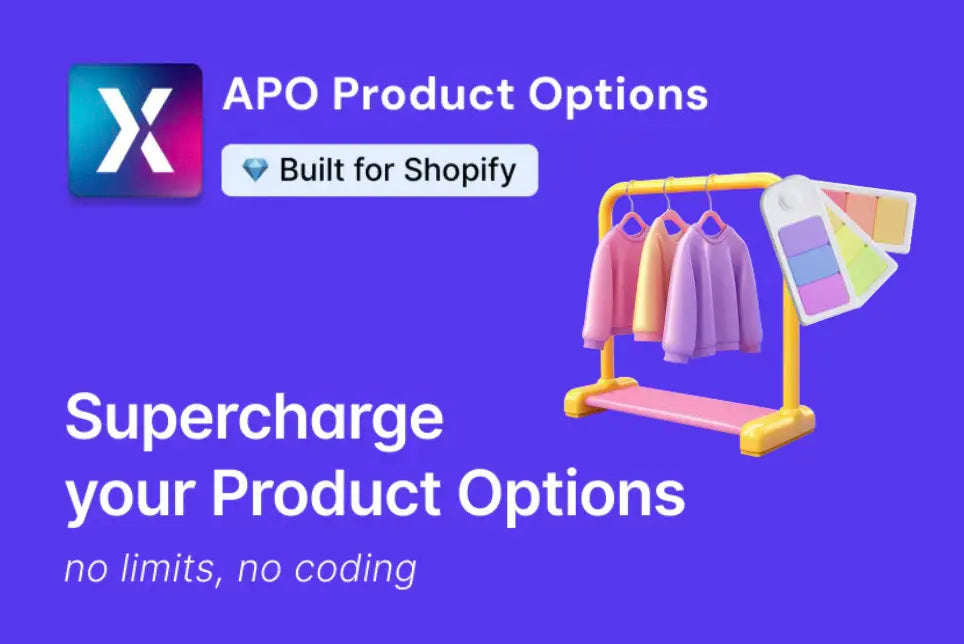
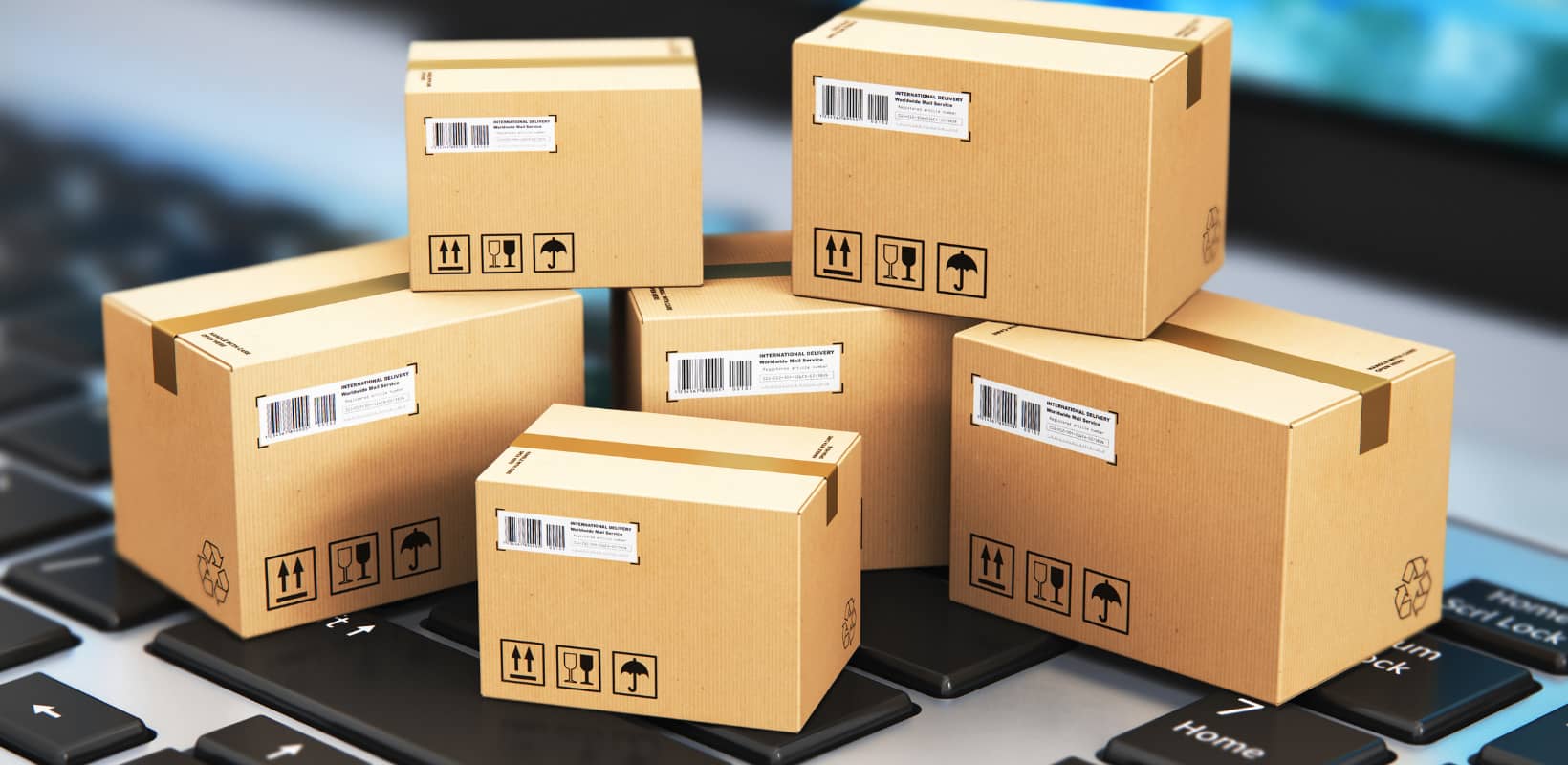
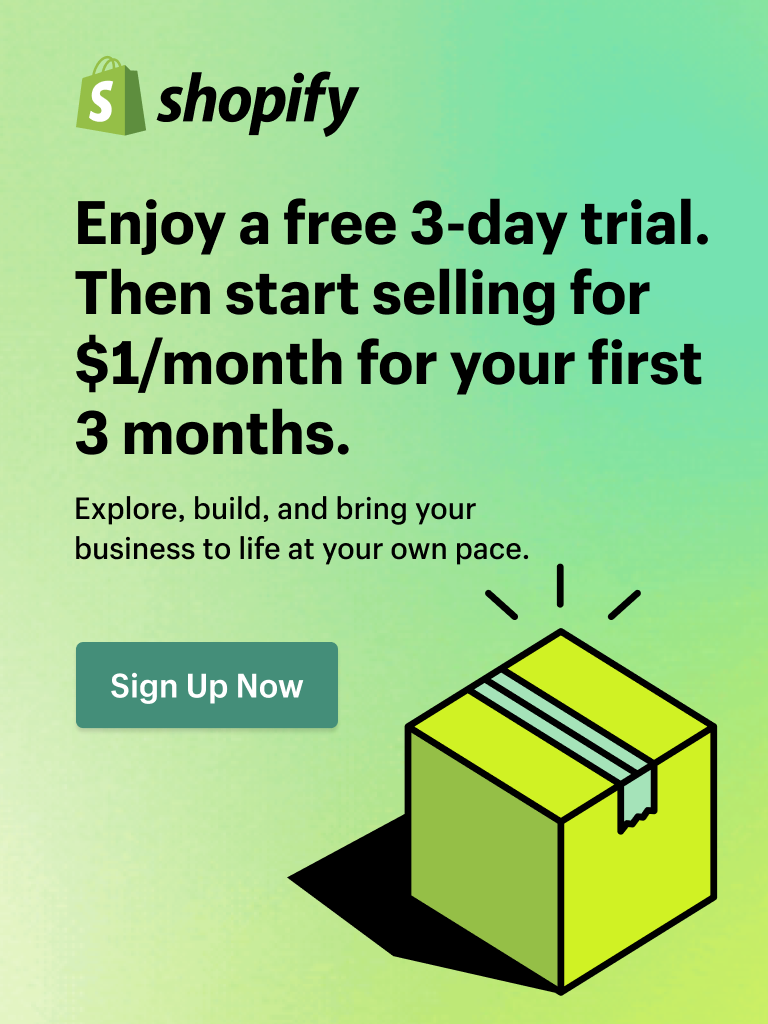
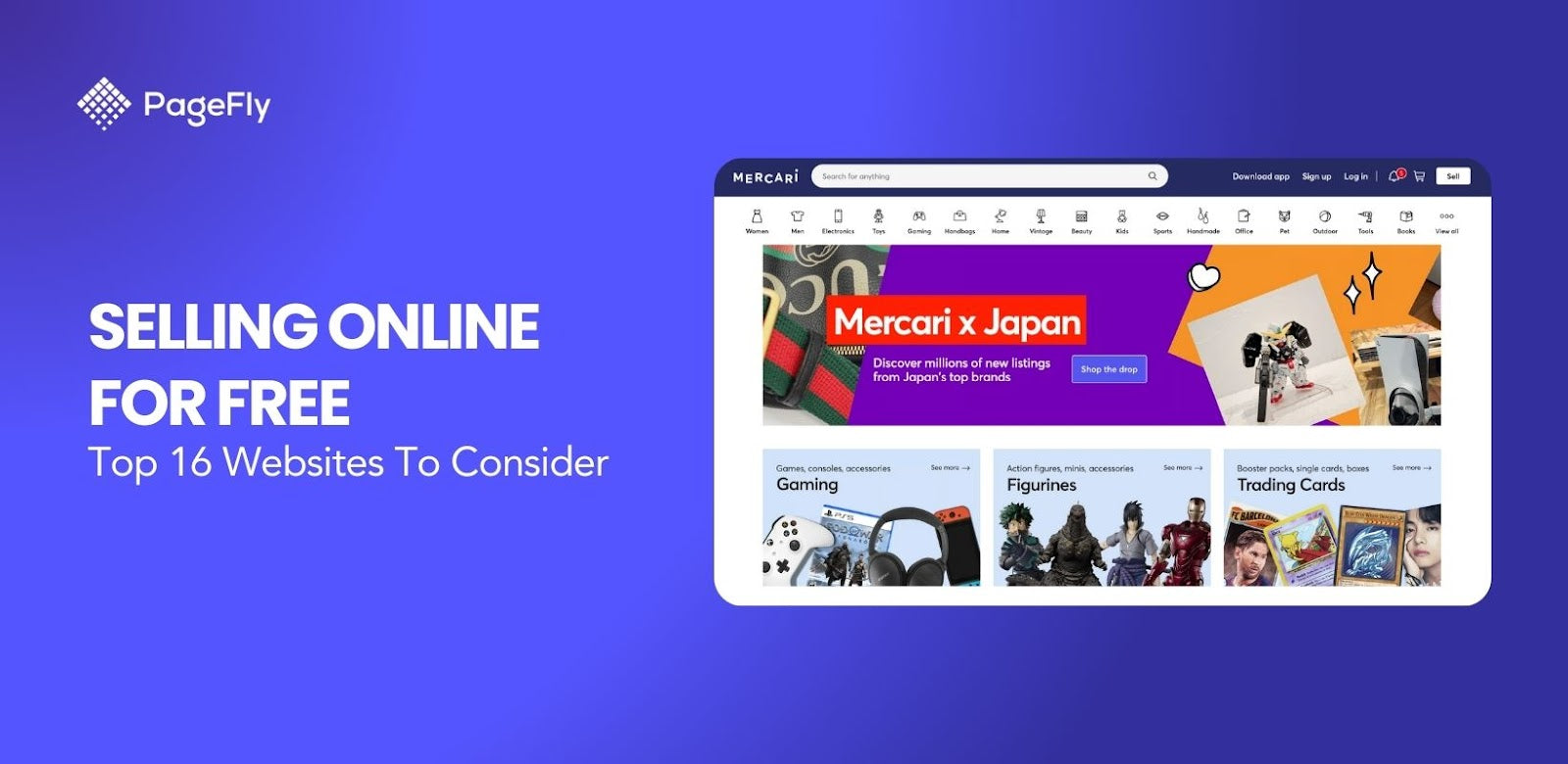
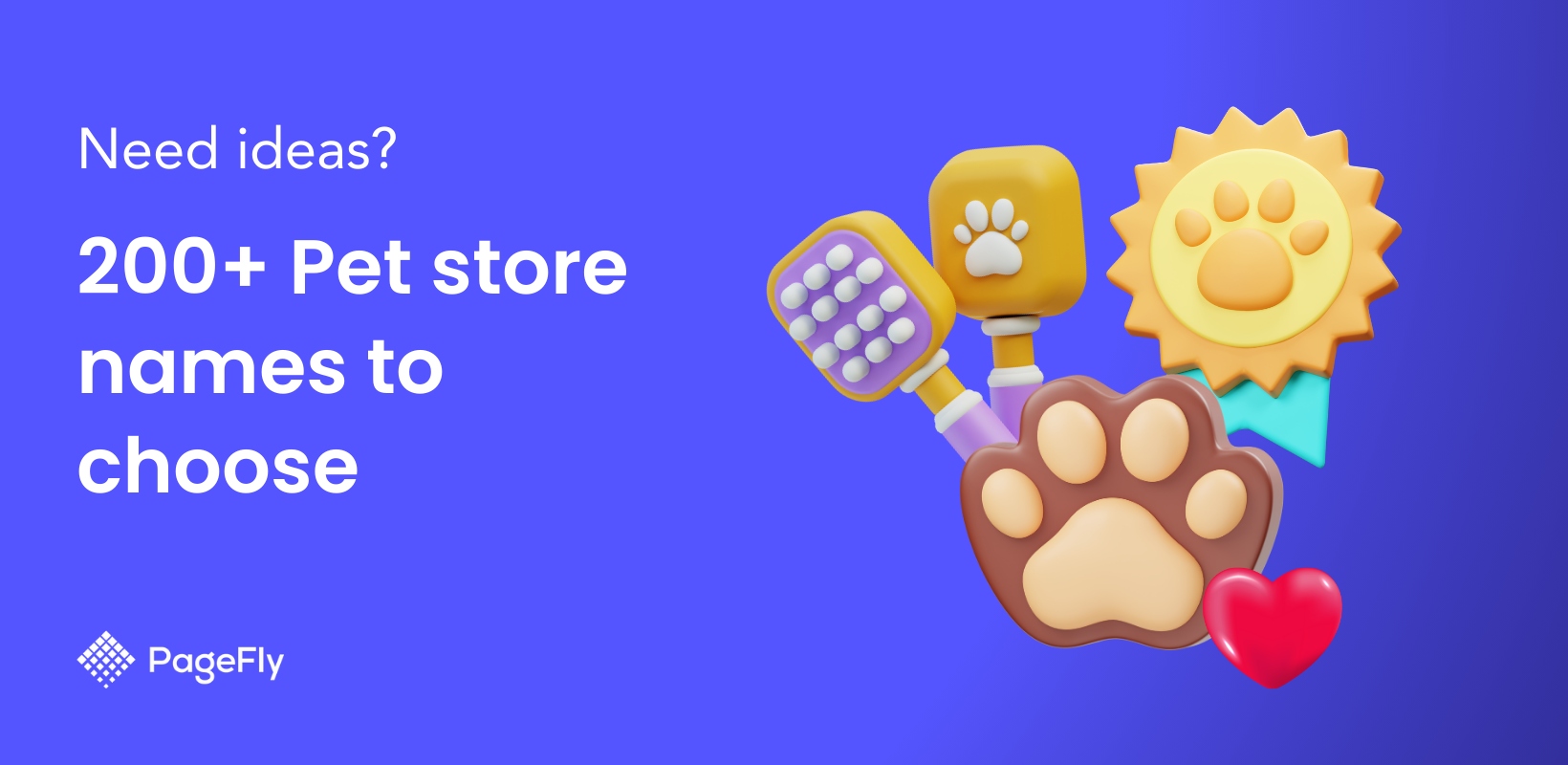
![14 Profitable Small Food Business Ideas for 2025 [Real Numbers]](http://pagefly.io/cdn/shop/articles/1_58b587d2-13db-4aa6-8c19-e40f5c88d3eb.jpg?v=1758255771&width=4460)
![Art Business Names: 350+ Ideas + Free Generator [2025 Updated]](http://pagefly.io/cdn/shop/articles/art_business_name_e94a54e9-d325-4ba3-94ab-7b4297952312.png?v=1760062968&width=1640)
